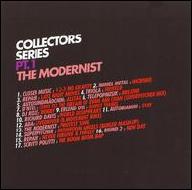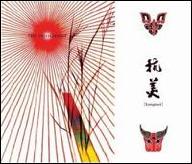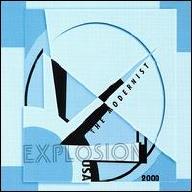Initially inspired by the pop scene in London, where both Burger and Voigt resided in the early '80s, the pair became acid techno converts when they returned to Germany. By 1988, they were recording electronic music influenced by both pop and acid techno, though Voigt's music had a minimal, rhythmic bent while Burger's was warmer and more melodic. Two of Burger's early tracks appeared on the 1989 compilation Teutonic Beats, which was produced by Thomas Fehlmann. Two years later, Burger and Voigt formed their first label, Trance Atlantic, on which Burger released Burger Industries: Vol. 1. In 1993, after a move to Frankfurt to work with Air Liquide's Jammin' Unit and Dr. Walker and the creation of two other labels, Structure (which released Burger's first Bionaut album, 1992's Everybody's Kissing Everyone) and Blue, Voigt and Burger put their collaboration on a temporary hiatus. Burger returned to Cologne and, along with recording artists like Cristian Vogel and Thomas Heckmann, he put his creative energies into Bionaut and one-off single projects, a new label, Eat Raw, a dance magazine called House Attack and a record store, Delirium.
He also contributed to the relaunch of EMI's Harvest label, which released Bionaut's 1995 long-player Lush Life Electronica as well as the 1996 Burger/Ink album Las Vegas and the Modernist's debut, 1997's Opportunity Knox. These releases were received warmly by publications like Spex, Muzik, Jockey Slut, and Mixmag. Around this time Burger also founded Granit, a graphics and illustration studio responsible for the artwork on all of his projects' covers.
By 1999, Burger had moved from EMI/Harvest to Sony, where he created the Popular Organisation, which featured a triumvirate of labels: the dancefloor-oriented Popular Tools, the experimentally-based Popular Sound and Popular Music, which released electronically-inclined pop. Popular Tools released the Modernist's second album Explosion in Europe in late 1999; the album was released in the US by Matador Records -- who also released the North American version of Las Vegas -- in early 2000 with different artwork and extra tracks.
The Modernist released a split EP with Bochum Welt, Eldar, on Art of Perception in 2001. 4 Remixe für the Modernist, containing material from the moniker's first two albums remixed by Voigt under various aliases, was issued by Kompakt. Wonder released the Modernist's 2002 EP Come Back as well as 2003 full-length Kangmei and remix EP Protest Songs. A Modernist track appeared on 2005's Speicher 28 single, and the mix CD Collectors Series, Pt. 1: Popular Songs was issued by Faith Recordings in 2006. Burger has largely concentrated on mastering work and collaborations since then, but he's continued reserving the Modernist for remixes, as well as contributions to Kompakt's annual Total compilation series, which were gathered on the 2021 digital release Total the Modernist. ~ Heather Phares & Paul Simpson, Rovi















